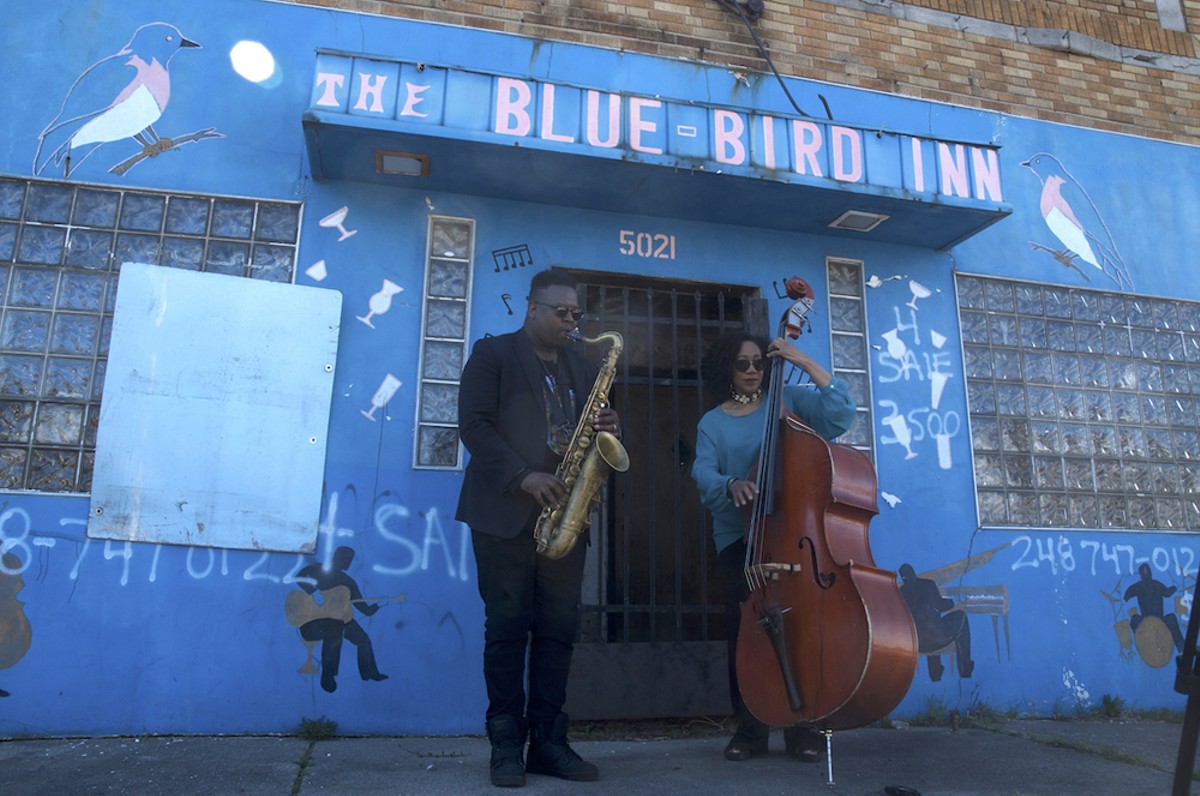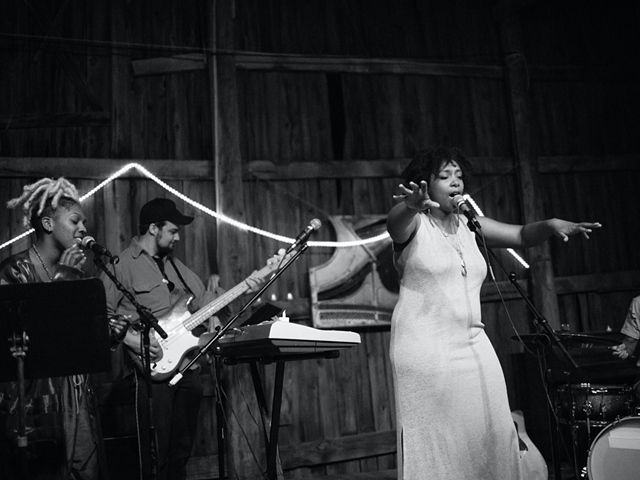The Historic Blue Bird Inn was easily one of Detroit's most storied west-side clubs, and for good reason: Jazz legends like John Coltrane, Miles Davis, and Elvin Jones would regularly perform there, honing a craft that would eventually be felt the world over.
"It meant a lot, especially to people on the west side," says Carleton Gholz, founder and executive director of the Detroit Sound Conservancy. "It was a place of leisure, entertainment. It was part of a larger conversation the musicians were having, with patrons coming from across the city."
More importantly, Gholz notes the Blue Bird Inn's significant cultural impact. "Just two blocks north, we had the Orsel and Minnie McGhee Home and the fight against racist housing covenants, where they were struck down in 1948," he says. "At the same time that Charlie 'Bird' Parker was playing the [Blue Bird], only a couple of blocks away Black people were fighting for the right to live in a neighborhood."
Its legacy will continue. Last week, the Historic Blue Bird Inn — long abandoned and in severe disrepair — was purchased by the Detroit Sound Conservancy.
"After seven years of grassroots activism preserving Detroit's musical legacies, we have purchased a home where we can carry on our mission," the DSC announced last week. "We are creating a music research archive and reopening a live music club on Detroit's West Side. We finally own 5021 Tireman — aka The Blue Bird Inn."
This was a big move for a nonprofit foundation committed to, as their mission statement says, "partnerships and programs that preserve Detroit's musical legacies."
The Blue Bird Inn closed in the early 2000s. Although the venue had offered live music since the 1930s, it was during the late '40s that it really made a name for itself with a house band founded by vibraphonist Phil Hill with Art Mardigan on drums. The next year, Wardell Gray, James "Beans" Richardson, and Jack Tiant joined. Tate Houston and Frank Foster would join in 1949.
Then, things got heavy pretty quickly. In the early 1950s, the Billy Mitchell Quintet became the house band and featured future Coltrane player and Pontiac native Elvin Jones. Miles Davis — who would eventually be considered the best jazz trumpet player of all time — joined in 1953. Other performers at the now-legendary jazz club include Pepper Adams, Sonny Stitt, Ahmad Jamal, Donald Byrd, Frank Gant, and Curtis Fuller.
But times change, and the Blue Bird Inn began to fade from memory.
In 2017, it was slated for demolition; the place was in rough shape, for sure. Then, in January of this year, the Detroit Sound Conservancy submitted a purchase agreement, and waited. In the spring of 2018, they secured a grant from the Kresge Foundation — and that's when things really took off.
The grant was "a big deal, it was a turning point for us," Gholz says. In fact, the Blue Bird Inn purchase was made with support from the Kresge Foundation through their Kresge Innovative Projects: Detroit (KIP:D) planning grant. That, Gholz says, "was huge for us. We've had lots of small donors over the years and some Kickstarter campaigns, but the KIP:D grant was the first time a local foundation had really seen the value of what we're doing. I think everyone looks at us a little differently now," he says. "That needed to happen."
True to the conservancy's mission, the community will help determine what comes next for the hallowed walls of the Blue Bird Inn.
"It'll really be up to the neighborhood," Gholz says. "Now that we own the building, I feel a lot more confident engaging the community. We never wanted to overpromise and underdeliver to people who had been disappointed so many times before. We have plenty of new people to meet, and people to plan with."
Immediate steps will be to secure the site and clean up the surrounding property. To the latter point, the nonprofit will be taking part in the MotorCity Makeover citywide cleanup effort on May 18. "We encourage volunteers to get in touch via our website," Gholz says.
Then, it's time to "build capacity for the organization, and raise funds for what's next." Gholz anticipates new community interaction and volunteer input. He acknowledges an interest in how nearby students will want to engage with the nonprofit and the historic space acting as their new headquarters. "How does this project wake up and engage with its neighbors?" Gholz wonders. Time will tell.
With all the renewed excitement and newfound enthusiasm for the Detroit Sound Conservancy's mission, it's also an appropriate time to reflect on all that brought them to this point.
"It's a little bittersweet," Gholz says. "LaVell Williams, our board president, died last fall. He was with us seven years ago, when we first met at the Blue Bird and really didn't have a plan. We kind of knew what we wanted to do, but we didn't know how we could do it. We didn't know necessarily that the Blue Bird was going to be the place. We just thought we should meet there, because it was abandoned and needed some love. That's all we could do that day.
"So," he continues, "I just wish LaVell was here. That's the big one. But he's here with us. This is the end of one era, and now a new journey begins."
Archive collections by the Detroit Sound Conservancy include the Graystone International Jazz Museum & Hall of Fame, the Blue Bird Inn stage, and the Club Heaven Sound System, in addition to hundreds of other artifacts, recordings, and oral histories. For more information, see detroitsoundconservancy.org.
Get our top picks for the best events in Detroit every Thursday morning. Sign up for our events newsletter.






